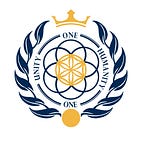Microsoft Co-Founder and Visionary Paul G. Allen Dies at 65
Paul G. Allen, the co-founder of Microsoft whose vision brought personal computers into homes all around the world, died in Seattle this Monday at age 65. Along with co-founder Bill Gates, Mr. Allen is responsible for the shift in the use of a personal computer from that by a few to a mainstream technology relied upon by businesses and individuals. “Personal computing would not have existed without him,” said Mr. Gates.
“In his own quiet and persistent way, he created magical products, experiences and institutions, and in doing so, he changed the world,” said Satya Nadella, Microsoft’s current chief executive.
The wealth Mr. Allen accumulated as a result of Microsoft success fueled his innovative and philanthropic activities. He donated more than $2 billion to nonprofits in the science, technology, education and environmental sectors. He also funded the Allen Institute for Artificial Intelligence in 2014.
In 2011, Allen announced the launch of StratoLaunch Systems, with the goal of creating a new air launch into the orbital system.
Space exploration was among his interests. In 2004, in a joint venture with Burt Rutan’s Scaled Composites, SpaceShipOne was launched, becoming the first privately funded effort to put a civilian in suborbital space. The same year, the joint venture won the $10 million Ansari X Prize for developing the first NGO launch of a reusable manned spacecraft into space.
In 2011, Allen announced the launch of StratoLaunch Systems, with the goal of creating a new air launch into the orbital system. The company is yet another joint venture between Paul G. Allen and Scaled Composite, a scaled-up version of SpaceShipOne. There are three components of the mobile launch system: a carrier aircraft built by Scaled Composite, a multi-stage payload launch vehicle, and an integration system.
Just a few days ago, StratoLaunch announced that the world’s biggest airplane moved one step closer to its first flight after it did its latest round of taxi tests at California’s Mojave Air and Space Port at speeds as fast as 80 mph. Takeoff is projected to happen at a speed of 140 mph, and those tests are coming soon.
And while the world mourns the death of the visionary, inventor and philanthropist, the fact that his legacy lives on — through Microsoft and StratoLaunch’s planes for test flights in 2019 — may offer some solace.
Learn more on Asgardia.Space
